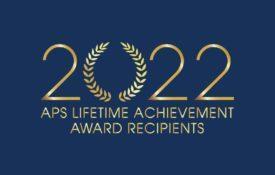-
Predicting the Future Is Possible. These ‘Superforecasters’ Know How.
Can we predict the future more accurately? It’s a question we humans have grappled with since the dawn of civilization — one that has massive implications for how we run our organizations, how we make policy decisions and how we live our everyday lives. It’s also the question that Philip Tetlock, a psychologist at the University of Pennsylvania and a co-author of “Superforecasting: The Art and Science of Prediction,” has dedicated his career to answering. In 2011 he recruited and trained a team of ordinary citizens to compete in a forecasting tournament sponsored by the U.S. intelligence community.
-
Why ‘Tight’ Cultures Had Better COVID Responses
“Culture is omnipresent: It’s all around us, but it’s invisible. We take it for granted,” says Michele Gelfand, professor of organizational behavior at the Stanford Graduate School of Business. “Often, when we get outside of our cultural bubble, we realize we’ve been socialized profoundly to have a certain set of norms and values.” How those norms vary and evolve is one of the primary focuses of Gelfand’s research. Most notably, she has found that cultures’ adherence to social norms falls along a spectrum from tight to loose. “Tight cultures, generally speaking, have more order,” she says. “They have less crime, more monitoring.
-

Fifteen Psychological Scientists Receive APS’s 2022 Lifetime Achievement Awards
Fifteen psychological scientists receive APS’s 2022 Lifetime Achievement Awards for their contributions to research, mentoring, scholarship, and academic achievement. Visit Page
-

Recipe for Success: Entrepreneurship and Psychological Science
In this episode of Under the Cortex, we look the crossroads of business acumen and psychological science with the help of Nikki Blacksmith and Mo McCusker of Blackhawke Behavior Science. Visit Page
-
How to Improve Your Ability to Overcome Rejection and Accomplish Goals in 10 Days or Less
I hate the thought of being rejected. I didn't go on my first date until I was seventeen, and that only happened because she asked me out. For years I had thought about writing my own book, but only did after my agent convinced me publishers were already interested. I was interested in speaking, but didn't actually become a speaker until a conference asked me to appear. Science says I shouldn't feel too bad about it, though. Brain scans show that people who get rejected experience a physiological response similar to processing physical pain: The more the response matters the more hearing "no" physically hurts. ...
-
A Spirit of Gratitude Is Healthy for Society
Greetings as we approach the 400th anniversary of the first Thanksgiving celebration. The Pilgrims in 1621 had much to be thankful for. They had arrived a year earlier with “no friends to wellcome them, nor inns to entertaine or refresh their weatherbeaten bodys, no houses or much less townes to repaire too, to seeke for succoure,” in the words of their leader, William Bradford. The Wampanoags, hoping the white settlers would help them fight other tribes, helped them survive the harsh winter. The wary allies celebrated that fall with a feast of turkeys, ducks and venison, although probably not cranberry sauce or pumpkin pie.

